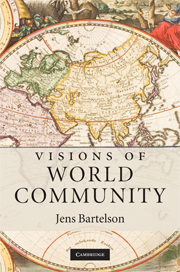1 - A conceptual history of world community
Published online by Cambridge University Press: 18 January 2010
Summary
This is a book about the idea of a world community and its history. In the history of international thought, the creation of a world community has been seen as a way of overcoming discord between political communities without having to impose sove reign authority from above. Yet the very same division of mankind into distinct communities that makes the idea of a world community morally compelling has also been the main obstacle to its successful realization, since differences between peoples have made such a community hard to attain in practice. Consequently, many of those who have defended the idea of world community have done so by arguing that the world of sovereign states first has to be transcended in order to make way for a coming community of all mankind. As Hedley Bull described what he thought was the Kantian view of international morality, ‘The community of mankind … is not only the central reality in international politics, in the sense that the forces able to bring it into being are present; it is also the end or object of the highest moral endeavour.’
But at this point we encounter a familiar paradox, since Bull was quick to add to this characterization that ‘The rules that sustain co existence and intercourse should be ignored if the imperatives of this higher morality require it.’ To him, such universalistic claims were nothing but barely concealed claims to imperial power, since precisely because of the pluralistic makeup of international society, every set of values can always be recast as an expression of some particular identity or interest.
- Type
- Chapter
- Information
- Visions of World Community , pp. 1 - 18Publisher: Cambridge University PressPrint publication year: 2009

